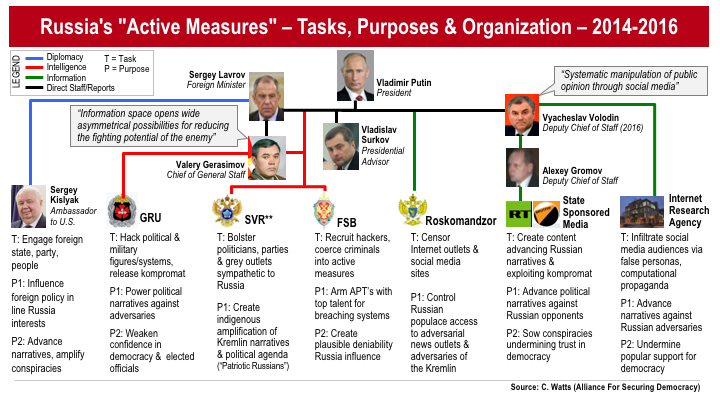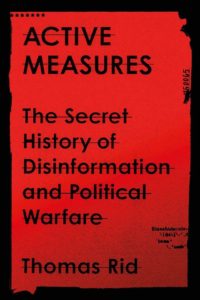
Clint Watts/Alliance for Securing Democracy
New technologies have made Russia’s information efforts easier to implement than the propaganda campaigns – aka active measures – that the Soviets conducted during the Cold War, according to a new analysis.
 Information efforts by foreign actors, focused mainly on online environments, is the subject of a new study by RAND analysts Marta Kepe, Hilary Reininger, James Marrone, Todd Helmus and Jordan Reimer, the authors of “From Consensus to Conflict: Understanding Foreign Measures Targeting U.S. Elections,” who review:
Information efforts by foreign actors, focused mainly on online environments, is the subject of a new study by RAND analysts Marta Kepe, Hilary Reininger, James Marrone, Todd Helmus and Jordan Reimer, the authors of “From Consensus to Conflict: Understanding Foreign Measures Targeting U.S. Elections,” who review:
- the intellectual basis of existing Russian information efforts: reflexive control theory;
- examples of information efforts by the Soviet Union and Russian Federation;
- select research on strategies that inform how to defend against online information efforts.
They recommend that strategies for responding to foreign information efforts be broad rather than narrow; anticipate which subgroups are likely targets of information efforts by foreign adversaries; and develop evidence-based preventive interventions for those who are most likely targets. RTWT







